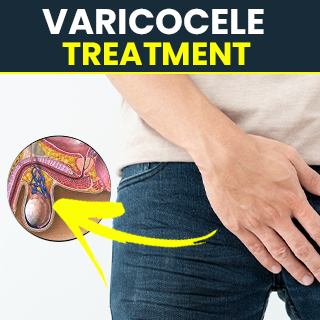Psoriasis, a chronic autoimmune disorder primarily affecting the skin, manifests in various forms, each requiring a tailored psoriasis homeopathic treatment approach. From scalp psoriasis to pustular psoriasis, understanding the distinct characteristics of these presentations is crucial for effective management.
Scalp psoriasis is a common variant, recognised by reddened patches covered with silvery scales that extend beyond the hairline. This condition often leads to itching and discomfort, impacting the quality of life. Regular application and meticulous removal of scales are essential steps for treatments to penetrate the affected skin.
Plaque psoriasis, the most prevalent form, is characterised by raised, inflamed patches covered with silvery scales, affecting various body parts. Psoriatic arthritis symptoms frequently accompany skin manifestations, causing joint pain and swelling. Inverse psoriasis, often found in skin folds like the armpits and groin, appears as smooth, red lesions that worsen with friction and sweating.
Psoriasis vulgaris, or plaque psoriasis, presents as thickened, red skin with silvery scales.
Pustular psoriasis, marked by white pustules surrounded by red skin, can be localised or generalised.
Genital psoriasis, affecting the genital region, requires careful consideration due to its sensitivity. Maintaining proper hygiene and seeking professional guidance are crucial for managing this variant.
In conclusion, the diverse presentations of psoriasis demand tailored psoriasis treatment approaches. Plaque psoriasis may require systemic options for extensive disease. Psoriatic arthritis symptoms call for anti-inflammatory and disease-modifying approaches. Inverse psoriasis challenges standard psoriasis homeopathic treatment due to its location, and pustular psoriasis demands aggressive interventions.
Genital psoriasis mandates special attention due to its sensitivity. Collaborative efforts between patients and healthcare providers are essential to navigating this multifaceted condition successfully. Through well-defined treatment strategies, individuals grappling with different forms of psoriasis can strive for effective psoriasis symptoms control and an improved quality of life.
Erythrodermic psoriasis is a rare but severe form of psoriasis, a chronic skin condition characterised by the rapid growth of skin cells resulting in red, scaly patches. This variant, also known as exfoliative psoriasis, is particularly aggressive, covering large areas of the body with inflamed skin and causing significant discomfort. While psoriasis can affect various parts of the body, including the face and nails, erythrodermic psoriasis presents unique challenges and requires specialised treatment approaches.
Managing erythrodermic psoriasis necessitates a comprehensive strategy that often involves a combination of medical interventions, lifestyle adjustments, and ongoing care. One of the primary goals is to alleviate the intense inflammation and scaling, which can lead to pain and potential complications. Homeopathic medicines work to slow down the excessive growth of skin cells and modulate the immune response that drives psoriasis.
For those seeking alternative or complementary options, homeopathic medicine for psoriasis is sometimes considered. However, it's essential to approach these treatments with caution. Consulting with a healthcare professional before starting any homeopathic regimen is crucial to ensure that the chosen approach is safe and appropriate for the individual's condition.
Psoriasis on face can be particularly distressing due to its visibility and potential impact on self-esteem. Special care must be taken when treating facial psoriasis to avoid irritation and adverse reactions. Mild, fragrance-free and natural moisturisers prescribed by a dermatologist can provide relief. It's advisable to refrain from using harsh cosmetics or skincare products that could exacerbate the condition. Instead, focusing on gentle cleansing and moisturising routines can help manage psoriasis symptoms without aggravating the sensitive facial skin.
Another variant of psoriasis that warrants attention is nail psoriasis. This subtype can cause pitting, discolouration, thickening, and separation of the nails from the nail beds.
Given the chronic nature of psoriasis, long-term management and regular follow-up are essential. Lifestyle factors, such as stress, diet, and smoking, can influence the severity of symptoms. Incorporating stress-reduction techniques, maintaining a balanced diet, and avoiding triggers can contribute to overall symptom improvement. Moreover, staying connected with a dermatologist or homeopathic physician who specialises in psoriasis care is crucial to adapting the psoriasis treatment plan as needed and addressing any emerging concerns.
In conclusion, psoriasis presents as a challenging variant of a complex skin condition. Managing psoriasis on highly visible areas like the face requires gentle care, while nail psoriasis demands a specialised psoriasis homeopathic treatment due to its impact on nail health. With a comprehensive and individualized strategy, individuals with this disease can effectively manage their condition with psoriasis treatment and enhance their quality of life.
For More References Visit Us
https://bharathomeopathycure.blogspot.com/2023/08/taking-control-of-asthma-personalized.html
https://sites.google.com/view/asthmakailaaj/home
https://sites.google.com/view/asthmakailaaj/home
https://www.evernote.com/shard/s490/sh/31778bc7-4a4c-88b6-2bcc-edcf912bb741/
https://www.minds.com/newsfeed/1542793784998236175?referrer=bharathomeopathy2810
https://bharathomeopathycure.blogspot.com/2023/08/male-fertility-rediscovered.html




No comments:
Post a Comment